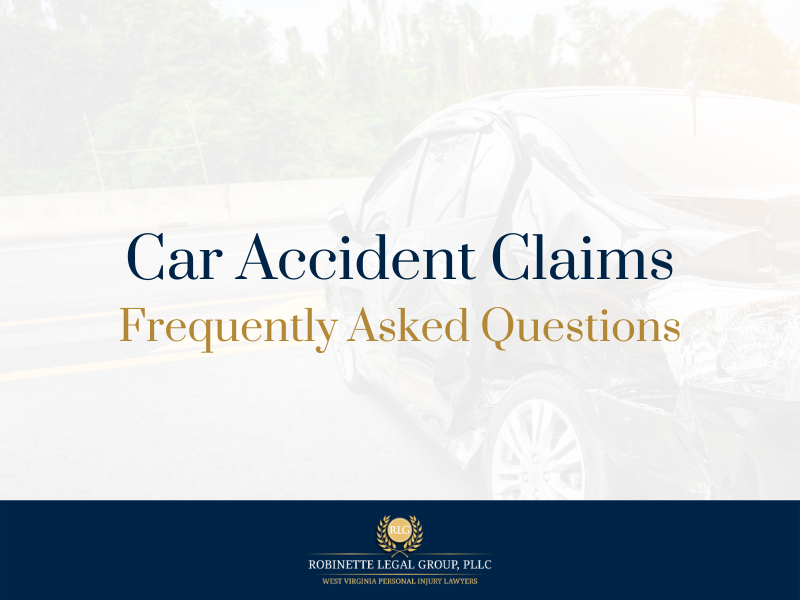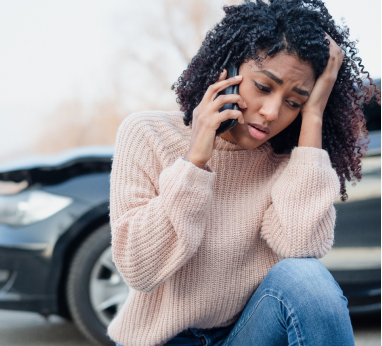I Have Been Injured in a Car Accident and Am Considering Filing a Lawsuit. What Information Do I Need to Record to Have a Successful Claim?
Documentation is everything when it concerns receiving a fair settlement from an insurance company. Your medical providers will keep records of all visits and treatments for your injury, but you should record the ways your injury has impacted your personal and work life. Only you can testify to the pain you feel, and the limitations you have in your workplace, home life, personal relationships, and recreational activities. Record all of these things as well as all activities you find that you can no longer engage in any other ways your injury has impacted your life.
Writing down your observations of injuries and losses when they are fresh in your mind will allow you to recall a greater number of details, and details mean compensation. No one else will do this for you.
For What Damages Can an Accident Victim Be Compensated Through a Lawsuit?
Accident victims can be compensated for economic damages: actual dollar losses such as medical bills, lost wages, and lost future income earning ability. Pain, suffering, humiliation, loss of enjoyment of life, and grief over the loss of a loved one are some of the non-economic losses for which a person may receive compensation. Punitive damages are also awarded in rare cases which serve to punish a defendant for extreme negligence and serve to deter future similar conduct by that defendant and others.
Should I Call the Police or an Ambulance?
To the extent you are able and can safely do so, you should check on the other driver to see if medical attention is required. Immediately call 911. If no one immediately complains of injuries, that doesn’t mean no one has been injured since many types of injuries do not surface until hours or even days later. The next step is to notify the local police department which will advise you if they need to be present at the scene.
If the police do report to the scene, you should write down the name of the investigating officer, the officer’s phone number, and the police report number, so you can obtain a copy when it is filed. Regardless of whether the police visit the scene, you should exchange your name, address, and phone number with all persons involved. Jot down the make, model, and year of all vehicles involved. Also obtain license plate numbers, the names of all insurance companies, and insurance policy numbers from each driver. If you have a camera, take pictures of the accident location and vehicle damage.
Remain calm and cooperate with the police. Although you should be polite to all involved, no one has the right to question you other than the police. Do not admit fault for the accident to the police – just give the facts of how the accident happened. You do not know all the facts about the cause of the accident, and only qualified accident reconstruction experts are qualified to determine the cause of a collision. Contact your insurance company and report the accident, but be wary in discussing your claim – the insurance adjuster is trained to spot ways to deny your insurance claim.
Obtaining a copy of the police report is one of the most important things you should do after being involved in a motor vehicle accident. If there is erroneous information on the report, you should contact the issuing officer and ask for a correction. Some will make revisions, and some won’t, but at least you have made a report indicating that you felt the police report was in error.

Should I Attempt to Move My Vehicle Before the Police Arrive?
Police officers are not witnesses to the accident – they rely on the physical evidence, witness statements, and the statements of the persons involved to form their opinions about who caused the accident. There are many circumstances that preclude moving the vehicles, such as driver injuries and vehicle damage. When there is no physical evidence of where the crash occurred and you move your vehicle, the responsible party that caused the accident, or their insurance company, may take advantage of this situation and blame you for causing the accident.
If you can safely move your vehicle off the road, and out of harm’s way, generally you should consider safety first for all concerned. This is yet another reason you should have experienced legal counsel to represent your interests in explaining your conduct to the insurance company.
Should I Speak to an Insurance Adjuster?
Two groups of insurance adjusters have an interest in your claim – your insurance company adjusters and the at-fault parties’ insurance adjusters. While insurance adjusters can sound friendly, understand that one of their primary motivations is to limit or even deny part or all of your claim. Many adjusters have decades of experience and have found ways to deny thousands of recoveries to injured victims just like you, so don’t be deceived that you can match wits with them and win them over. Their job security depends on limiting and denying your claim. By the time you have spoken with them and they have your recorded statement, the damage to your case may be irreversible.
You have an obligation to your own insurance company to report an accident and injury. However, it is not advisable to give a recorded statement to even your own insurance company adjuster until you have spoken with an attorney with experience handling insurance claims. Certainly, do not speak with the at-fault parties’ insurance adjuster until you have consulted a lawyer.
The Insurance Adjuster Says I Could Not Have Been Injured in Such a Small Accident. I Am Still in Pain. What Should I Do?
Don’t argue with the adjuster – they have already decided that your claim is worthless. Instead, consult with a personal injury lawyer to discuss the merits of your claim. You will be constructively using your time, and the consultation is free.
What if the Other Driver Was Uninsured?
West Virginia law requires all operators to have a minimum of $25,000 per person and $50,000 per accident in liability coverage, and minimally, the same amount of uninsured motorist coverage. Because insurance laws are very complex, you will need a skilled lawyer to find all the insurance coverage you are entitled to.
What Is a Reasonable Attorney Fee for Automobile Cases?
Among competent and experienced Morgantown personal injury lawyers, a one-third fee plus costs is standard. Many highly experienced trial lawyers raise their fees to forty percent should the case proceed to trial. Some lawyers advertise for lower rates, but you get what you pay for. If you hire cheap, you may get a lesser result. Even the most qualified trial lawyers, however, will charge as low as twenty-five to thirty percent for some types of cases, so ask your prospective lawyer why the fee is set at a particular rate. Be informed so you know what to expect from your lawyer.
I Was in a Car Accident and Have Now Been Called for a Deposition. What Is a Deposition?
A deposition is similar to giving oral testimony in a trial, but is less formal and takes place in an office setting at a time before trial. A plaintiff, defendant, witness, or expert witness is questioned under oath by the attorneys representing both sides of a lawsuit. The goal is to discover all information relevant to a lawsuit before it is formally tried in a court of law. The resulting testimony gained in a deposition may also yield information leading to a settlement of the case before it reaches trial.
Why Is It Important to Follow All My Doctor’s Recommendations for Treatment After a Car or Work Accident?
If you are hurt in an accident or head-on collision, it is critical to seek prompt and appropriate medical treatment. Don’t allow any interruption in your treatment without a good reason. If you skip appointments or fail to follow through with prescribed treatments, the insurance company and their defense lawyers will argue that you must have felt that you were fully recovered from your injuries and had no need for continued treatment.
Additionally, much of the work that was done by insurance adjusters to evaluate claims in the past is now done by computers. At least 70% of insurance companies now use computer software programs to determine case value. Your doctor will record your injuries using the International Classifications of Diseases codes. These codes are then entered into the insurance claims evaluation program. If the required documentation is not entered into the computer in the language and codes the program understands, the program will not properly evaluate your injury and may deny the compensation due to you. A knowledgeable personal injury attorney will know how to present the medical evidence the computers are designed to recognize.
If you have any additional questions or would like to speak to a Morgantown car accident lawyer, send us a message online or call us at (304) 594-1800 for a free case review.
Call us today to find out how we can help you.


Car Accident Injuries
Jeff Robinette was hired by a young woman who had sustained permanent injuries to her foot due to an auto collision. The insurance company offered such a small amount and dealt with her in such a dismissive manner that the treatment of her case amounted to bad faith on the insurance company’s part. Jeff was able to obtain a substantial settlement which allowed this young woman and her husband to pay medical bills, buy a car and a home, and start building a future together.
Motorcycle Accident
A police cruiser was attempting to make a U-turn on a four-lane highway and collided with our client’s motorcycle. The trooper had failed to follow the rules of the road by making an unsafe or prohibited lane change and was found to have operated his vehicle in an “erratic, careless, or reckless” manner.
As a result of the trooper’s negligent driving, our client sustained bodily injuries which required emergency room treatment and subsequent physical therapy and prescription medication to recover from his injuries.
The Robinette Legal Group, PLLC was able to recover an ample settlement to cover our client’s medical bills, lost wages, and pain and suffering.
Drunk Driver
While driving his car, our client was hit by a drunk driver which injured his shoulder so severely that three surgeries were required. The insurance company haggled over the value of the claim, initially giving a low-ball offer. Jeff Robinette was able to force the insurance company to pay all insurance available for this claim.
Our Awards and Certifications













Practice Areas
- Personal Injury Overview
- Bicycle Accidents
- Brain Injuries
- West Virginia Burn Injury Attorney
- Car Accidents
- Commercial Delivery Truck Collisions
- Construction Site Injuries
- Dog Bite Injuries
- Drunk Driver (DUI) Accidents
- Gas Explosion Injuries
- Insurance Claim Disputes
- Mining Accident Injuries
- Motorcycle Accidents
- Pedestrian Accidents
- Medical Malpractice
- Rear-End Collisions
- Scaffold & Ladder Fall Injuries
- Slip And Fall Accidents
- Spinal Cord Injuries
- Truck Accidents
- Uninsured Motorists
- Work Accidents
- Wrongful Death



